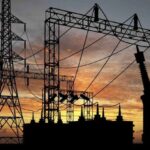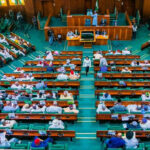Power consumers and industry experts have urged the federal government to soft pedal while considering the economic situation as it begins the six months periodic review of the Multi Year Tariff Order (2020), and concludes the Extraordinary tariff Review requested by the Distribution Companies (DisCos) and the Transmission Company of Nigeria (TCN) since 2020.
The Nigerian Electricity Regulatory Commission (NERC) on Monday published a notice opening a 21 day window for comments by stakeholders as it tries to conclude the extraordinary review and the minor review of MYTO 2020.
- No partnership will resolve Nigeria’s security situation – UK
- Zaria is under threat of armed bandits
According to the notice endorsed by NERC Chairman, Engr. Sanui Garba and published on Monday, the Commission said the process is for the tariffs of the Transmission Company of Nigeria (TCN) and the 11 Distribution Companies (DisCos).
NERC in the notice said the review will be based on changes in inflation (currently 18 percent), foreign exchange (over N400), gas prices ($3.80), available generation capacity (about 5,000MW), and the Capital Expenditure (CAPEX) required to evacuate and distribute the available generation capacity.
The upward trend of these indices, especially the inflation and forex would mean a tariff hike but the government can continue its subsidy to cut the effects on consumers.
When concluded, the result of the minor tariff review could be implemented by July 2021, if there is no further subsidy with about N50 billion being spent monthly currently.
In Kano, Mr Peter Aboki who operates a welding workshop at Tinshama quarters in Nassarawa LGA, said electricity supply has dropped while tariff increased this year. He said KEDCO issued a bill recently with come customers getting N280,000 monthly bill.
A cottage rice mill operator, Alhaji Ahmadu Makama, also said power supply has dropped since two months.
Mustapha Hassan, a lawyer in Kaduna State said the current power supply has not improved. He is however better with meter as his bill dropped from N30,000 (estimated) to N15,000 with meter monthly. “I think I am better for it with the prepaid meter.”
Gedion Godwin who operates a restaurant around Mogadishu in Kaduna city centre, also complained of poor supply.
“I use the prepaid meter and by the time you recharged N1000, it is gone in two days and you will have to recharge again because the meter runs very quickly.”
Stanley Ebuka, an entrepreneur at Alaba International Market in Lagos pays N1000 a month on electricity for his shop with poor supply. He however pays another N2000 for fuelling generator while using solar too.
Another entrepreneur, Michael Umeh pays N1,400 monthly for his shop but hardly gets light “and we still have to pay anyway. I have been here for about eight years and the situation has been the same for a very long time.”
The President, Nigeria Consumer Protection Network (NCPN), Kunle Kola Olubiyo, in an open letter to NERC, said: “We are constrained to write to you and crave your indulgence to calm down, slow down and halt the drift. The timing of another increase in electricity tariff in Nigeria is ill-advised and unacceptable to electricity consumers/all classes of electricity end users in Nigeria.
“We had expected that the regulator would have allowed the impact of the January 2021 major tariff increase to settle down.”
Reacting, the Director General, Lagos Chamber of Commerce and Industry (LCCI), Dr Muda Yusuf lamented that the reviews are coming in quick succession.
He said that NERC needs to observe a balance between commercial logic and the prevailing economic situation while urging the DisCos to accelerate metering.
On his part, Professor of Capital Market, Uche Uwaleke said: “Without prejudice to the merits of having a cost reflective tariff, the time is not just right to increase electricity tariffs. The conditions precedent have also not been met.
“It is clear, even to the blind, that further hike in electricity tariffs will aggravate cost of production and by extension cost of living for the ordinary Nigerian and increase poverty levels.”
Public Sector Economist with the Pan Atlantic University, Dr Olalekan Aworinde, said: “To be completely honest, the tariff increase is not a bad idea but the timing is wrong.
“Our current tariff is one of the lowest in Africa and our distribution companies are running at a loss.”
He said Nigerians are ready to pay when they get value for the money. “An increase in energy price will have a multiplier effect on several other things and the bug will be passed to the common man.”
FG mindful, still subsidizing electricity cost
The Senior Special Adviser to the President on Infrastructure, Ahmad Rufai Zakari, who spoke to Daily Trust on these issues, said the federal government is mindful of the situation and still subsidizing electricity for the poorer masses.
He also said NERC was empowered by the Electric Power Sector Reform Act 2005 (ESPRA) to do the periodic electricity tariff review.
Zakari noted that it was left to the federal government to decide on what to do especially at a time the country is facing harsh economic condition.
“Don’t forget that the tariff rates for Band D and E customers have not changed and the government has continued to pay subsidy on that,” he added.
Speaking on the extraordinary tariff review, a top government source said, there are certain indices that are favouring the DisCos and increasing the cost of electricity for ordinary Nigerians. “This is part of what the review will do to bring down those indices.’
The official also noted that the review is part of the commitment the federal government must show to the World Bank in the process of seeking loans for the power sector.
From Simon E. Sunday (Abuja), Ibrahim M. Giginyu (Kano), Lami Sadiq (Kaduna), Christiana T. Alabi, Yvonne Ugwuezuoha, Sunday M. Ogwu (Lagos)

 Join Daily Trust WhatsApp Community For Quick Access To News and Happenings Around You.
Join Daily Trust WhatsApp Community For Quick Access To News and Happenings Around You.


